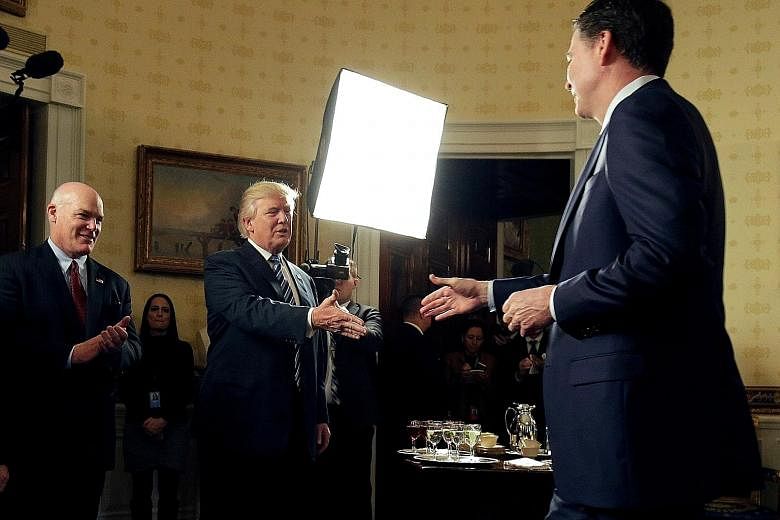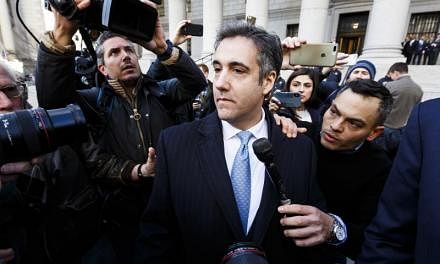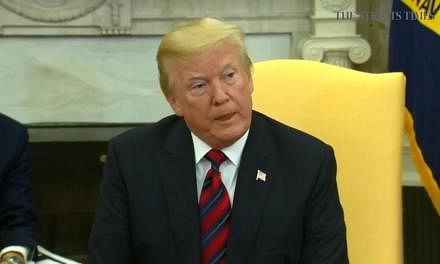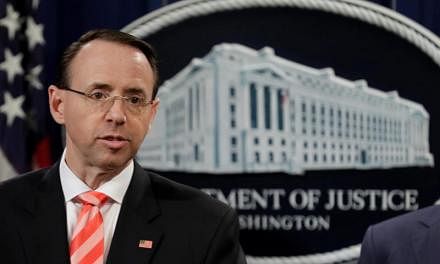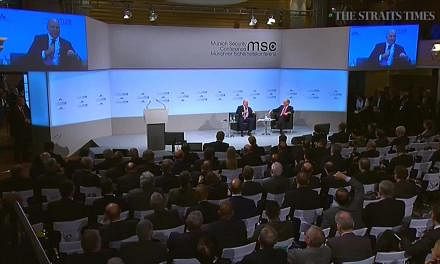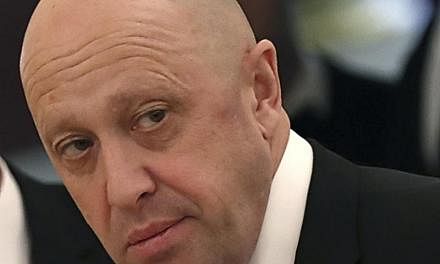WASHINGTON • Every time Federal Bureau of Investigation (FBI) director James Comey appeared in public, an ever-watchful President Donald Trump grew increasingly agitated that the topic was one he was most desperate to avoid: Russia.
Mr Trump had long questioned Mr Comey's loyalty and judgment, and was infuriated by what he viewed as the director's lack of action in recent weeks on leaks from within the federal government.
By last weekend, he had made up his mind: Mr Comey had to go.
At his golf course in Bedminster, New Jersey, Mr Trump groused over Mr Comey's latest congressional testimony, which he thought was "strange", and grew impatient with what he viewed as his sanctimony, said White House officials.
Mr Comey, Mr Trump figured, was using the Russia probe to become a martyr.
Back at work on Monday morning in Washington, Mr Trump told Vice-President Mike Pence and several senior aides that he was ready to move on Mr Comey.
First, though, he wanted to talk with Attorney-General Jeff Sessions, his trusted confidant, and Deputy Attorney-General Rod Rosenstein, to whom Mr Comey reported directly.
Mr Trump summoned them to the White House for a meeting, according to a source.
The President had already decided to fire Mr Comey, according to this source. But in the meeting, several White House officials said, Mr Trump gave Mr Sessions and Mr Rosenstein a directive: To explain in writing the case against Mr Comey.
The pair fulfilled the boss' orders, and the next day, Mr Trump fired Mr Comey - a breathtaking move that thrust a White House already accustomed to chaos into a new level of tumult, one that has legal as well as political consequences.
Mr Rosenstein threatened to resign after the narrative emerging from the White House on Tuesday cast him as a prime mover of the decision to fire Mr Comey and that the President acted only on his recommendation, said the source, who asked not to be named because of the sensitivity of the matter.
Justice Department officials declined to comment.
The stated rationale for Mr Comey's firing delivered on Wednesday by principal deputy White House press secretary Sarah Huckabee Sanders was that he had committed "atrocities" in overseeing the FBI's probe into Mrs Hillary Clinton's use of a private e-mail server as secretary of state, hurting morale in the bureau and compromising public trust.
"He wasn't doing a good job," Mr Trump told reporters on Wednesday. "Very simple. He wasn't doing a good job."
But the private accounts of more than 30 officials at the White House, the Justice Department, the FBI and on Capitol Hill, as well as Mr Trump's confidants and other senior Republicans, paint a conflicting narrative centred on the President's brewing personal animus towards Mr Comey. Many of those interviewed spoke on the condition of anonymity in order to be candid.
Mr Trump was angry that Mr Comey would not support his baseless claim that president Barack Obama had his campaign offices wiretapped. Mr Trump was frustrated when Mr Comey revealed in Senate testimony the breadth of the counterintelligence investigation into Russia's effort to sway the 2016 US presidential election.
And he fumed that Mr Comey was giving too much attention to the Russia probe and not enough to investigating leaks to journalists.
A turning point came when Mr Comey refused to preview for top Trump aides his planned testimony to a Senate panel, White House officials said. Mr Trump had wanted a heads-up from Mr Comey about what he would say at a May 3 hearing about his handling of an investigation into former Democratic presidential candidate Hillary Clinton's use of a private e-mail server.
When Mr Comey refused, Mr Trump and his aides considered that an act of insubordination. Previews of congressional testimony to superiors are generally considered courteous.
In his Tuesday letter dismissing Mr Comey, Mr Trump wrote: "I greatly appreciate you informing me, on three separate occasions, that I am not under investigation."
People familiar with the matter said that statement is not accurate, although they would not say how it was inaccurate. FBI officials declined to comment on the statement, and a White House official refused to discuss conversations between Mr Trump and Mr Comey.
THE WASHINGTON POST
